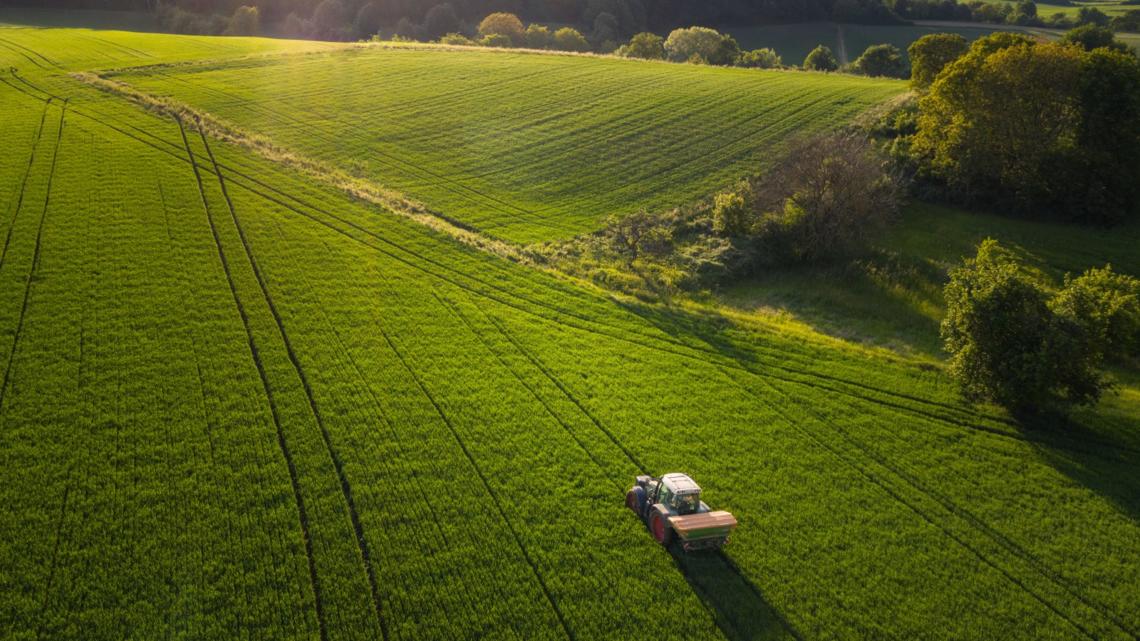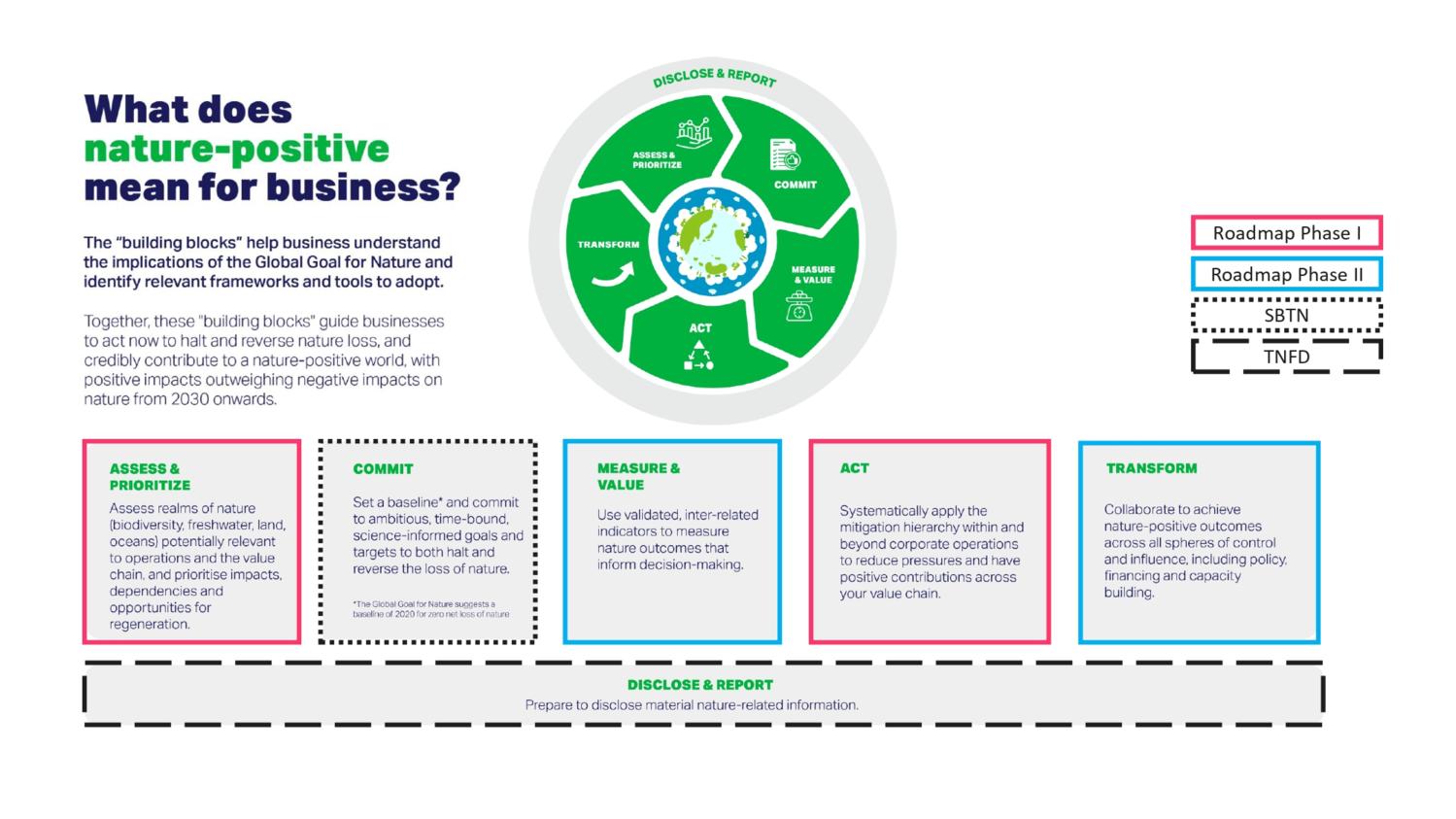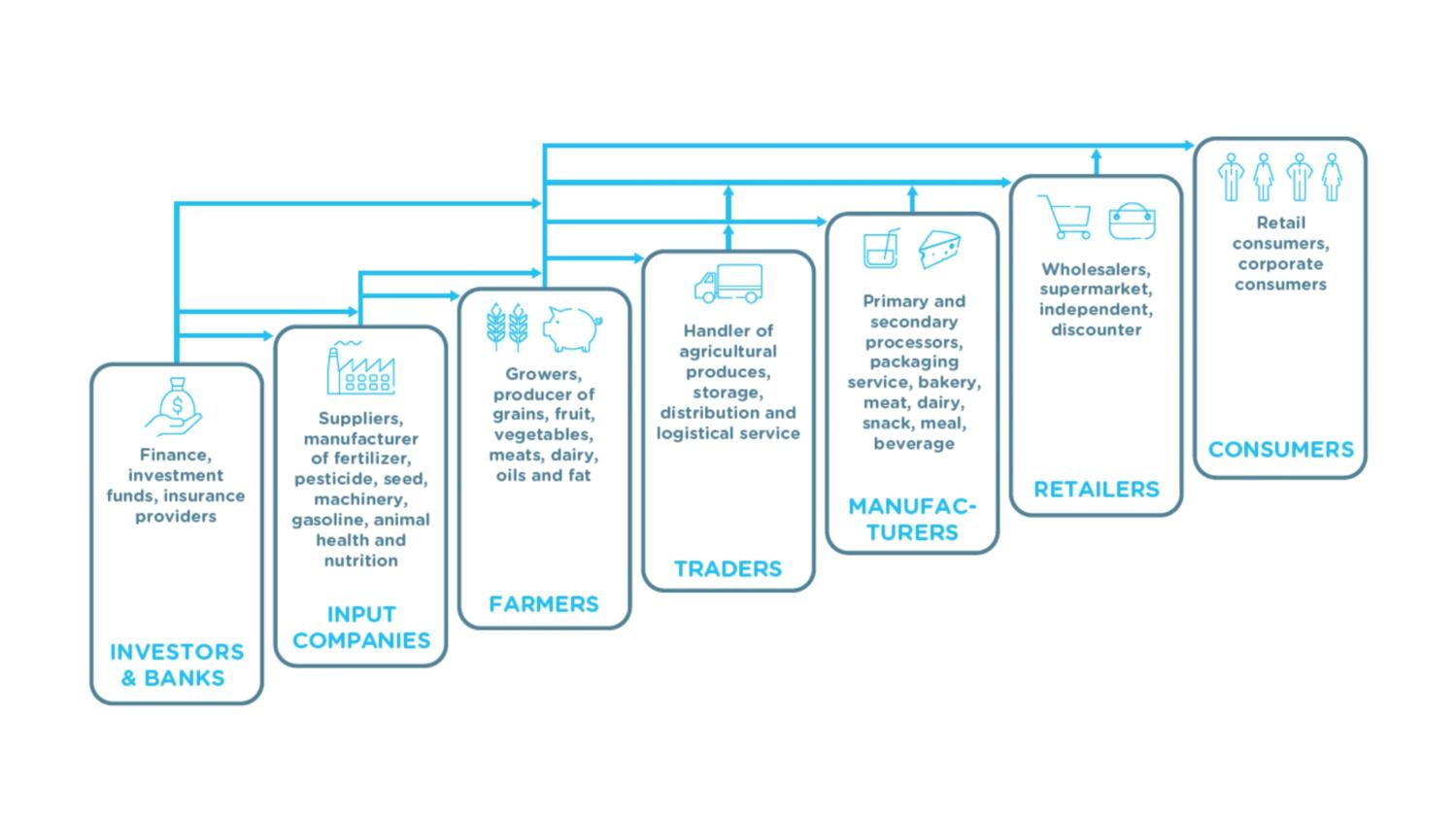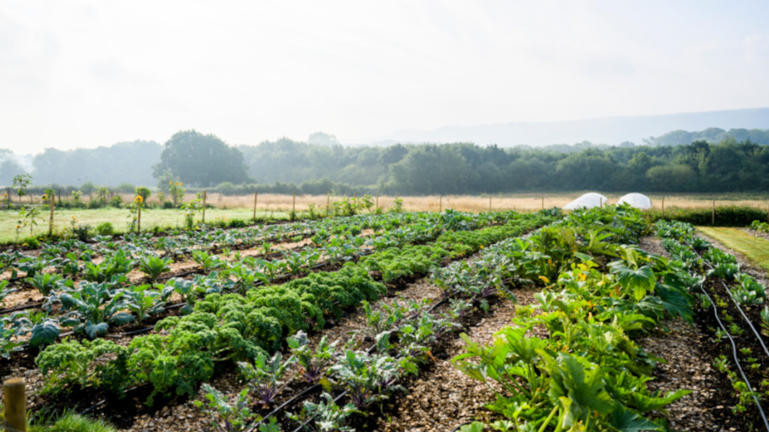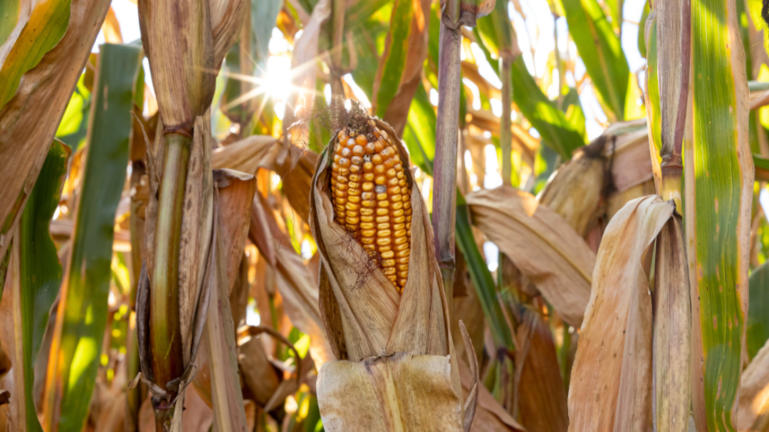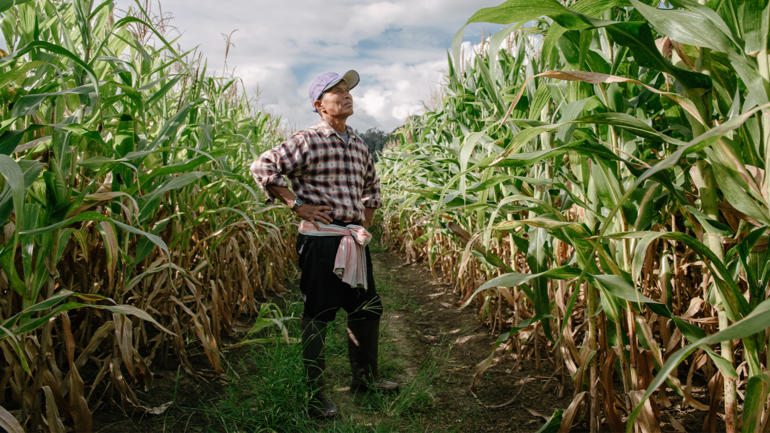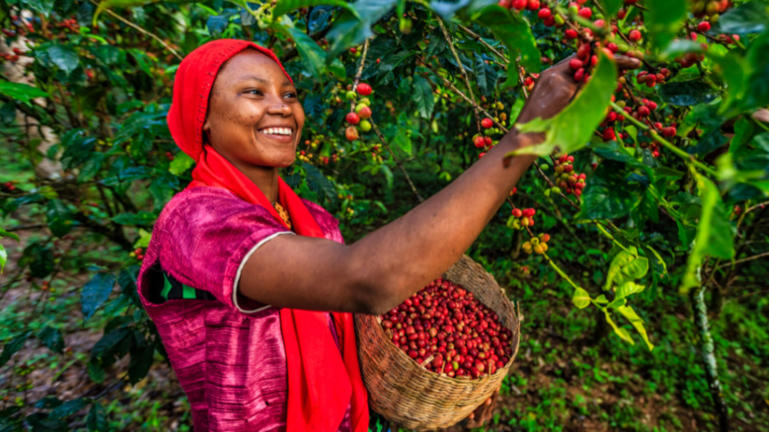Nature crisis and role of businesses
It’s no secret that humans are damaging and losing nature at a pace and scale that threatens our very existence on planet Earth. However, our natural systems underpin everything; over half of global GDP depends directly on nature and its services (and the rest indirectly). The good news is that nature is quickly climbing the policy and business agenda alongside the climate emergency. There is growing consensus on the concept of a “global goal to halt and reverse nature loss by 2030 with a view of full recovery by 2050.”
Nature-positive food and agriculture is a busy space and for good reason: land use (meaning agriculture and forestry) puts the most pressure on nature of any sector. In order to feed at least 9 billion people by 2050, we’ll need to increase global food production by some 56% compared to 2010 levels, according to a 2018 article by the World Resources Institute.
Next to Climate action and Equity action, Nature action is one of WBCSD’s three "Imperative” areas of work and is intentionally embedded in WBCSD’s membership criteria. Our Vision 2050 identifies food as a key pathway in tackling the three imperative societal challenges: the climate emergency, nature loss and mounting inequality.
With the UN Biodiversity Conference COP15 in Montreal just around the corner, the momentum is rising for a nature positive world. But what does it actually mean for a business – or an entire sector – to do its part to achieve a “nature-positive” future? This is the question behind our development of sector-specific Nature-Positive Roadmaps, including for the land-based food and agriculture sector.
Are you a WBCSD member interested in joining this effort? Reach out directly at inbusch@wbcsd.org |
Nature-Positive Food & Agriculture Roadmap
The Nature-Positive Food & Agriculture Roadmap that is currently under development will address the need for a consistent, sector-specific approach that allows companies to understand their connection with nature and their opportunities to drive nature-positive outcomes across the land-based agricultural value chain. The roadmap will support food and agriculture companies in setting science-based (Science Based Targets Network (SBTN)-approved) nature-related goals and targets and disclosing progress through quantifiable impacts and outcomes (Taskforce on Nature-related Financial Disclosures (TNFD)-aligned).
In the process of developing the Nature-Positive Food & Agriculture Roadmap, we will be intentionally collaborative (working together with our member companies, other WBCSD projects and external stakeholders), practical (in order to maximize business support and uptake), and adaptable (learning as we go and modifying accordingly since this space is evolving quickly). Our approach is closely aligned with the leading emerging standards in the space – TNFD and SBTN – and leverages existing resources such as the UN Food and Agriculture Organization’s reference framing and the Natural Capital Protocol. We are designing the roadmap for use across the maturity spectrum, from companies just beginning their nature-positive efforts to those leading the way on strategy, target-setting and disclosure. We will engage key stakeholders from the academic, conservation and policy realms to gather input and build consensus, as well as align with – and draw lessons from – other WBCSD sectoral roadmaps under development. A group of fifteen WBCSD member companies spanning the food and agriculture value chain is directly engaged in the effort.
Our key initial insight is to carry out a series of “deep dives” assessing nature-related impacts, dependencies and mitigating actions in a commodity- and region-specific contexts. |
The project will evolve in stages. Phase I, which began earlier this year, focuses on aligning on a shared sectoral definition of nature-positive, developing a nature-related materiality assessment for the sector, and identifying key “no-regret” actions to avoid and reduce negative impacts, restore and regenerate ecosystems and transform value chain systems. Phase II will kick off later in 2023, with a focus on developing key nature-related indicators for the sector and shared guidance and resources for measuring, valuation and reporting.
The roadmap centers on WBCSD’s nature-positive building blocks, which translate high-level actions into clear steps for business implementers. We’re also incorporating the foundational elements of the main frameworks, including the SBTN initial guidance and TNFD’s sectoral guidance. As they continue to evolve into 2023, we will incorporate crucial updates into our approach.
Roadmap phase I aligns with the Assess & Prioritize and Act building blocks, while phase II will focus on the Measure & Value and Transform blocks. Our engagement with SBTN and TNFD apply to the Commit and Disclose & Report blocks, respectively. Source: adapted from What does nature-positive mean for business? - World Business Council for Sustainable Development (WBCSD)
Deep Dives: Focus on specific commodities and locations
Unlike climate-related impacts, which can be felt globally, nature-related impacts are highly location-specific. It is therefore necessary to apply solutions at the local landscape and farm levels. Recognizing the scale, diversity and complexity of the food and agriculture sector, our taskforce has prioritized applying the aforementioned building blocks to a series of specific agricultural value chains.
Each of these “deep dives” will focus on the production of a specific commodity in a single region, with an eye towards outputs that businesses can synthesize for application across the sector. The importance of a location-specific approach emerged quickly in our initial member consultations, in order to avoid over-generalized outputs. It is also clear that we’ll need to examine the full value chain, as the nature-related impacts/dependencies and mitigation actions can look quite different, for example, for an agricultural producer compared to an input provider (upstream) or a processor or retailer (downstream). Finally, the companies engaged have aligned on an approach that considers the full annual crop rotation cycle, which may include crops beyond the target commodity. We cannot simply isolate one crop during one growing season; that would certainly make our task simpler but nature doesn’t work that way.
Three key initial considerations for planning our “deep dives” have emerged: The importance of considering location, value chain positioning and a full annual crop rotation. |
To select the focus commodities and locations, we considered multiple factors, including areas of expected agricultural expansion, biodiversity hotspots, operating regions of the WBCSD member companies engaged, and regions (within countries) where commodities are produced. The process has led us to scope a first in-depth look into soy (plus rotation) in Brazil, opening a great opportunity to collaborate with our Soft Commodities Forum project. We will likely conduct additional deep dives during the first part of 2023 and will seek opportunities for further collaboration (e.g., with the One Planet Business for Biodiversity (OP2B) initiative).
The roadmap will categorize key nature-related impacts and dependencies and recommend corporate actions across the full food & agriculture value chain. Source: TEEBAgriFood Draft Operational Guidelines for Business - Capitals Coalition
Conclusion and next steps
The massive challenges facing food and agriculture in the 21st century also present an unprecedented opportunity to shift the sector from being the main driver of nature loss to a net regenerator of nature. The Nature-Positive Food & Agriculture Roadmap will provide support for companies in the land-use sector to drive this change within their own value chains and beyond.
By engaging directly with leading companies in the space and aligning with the relevant standards and frameworks, we will add a practical, sector-specific resource to the nature-positive toolbox. We plan to publish a phase I summary in the first part of 2023, and with phase II kicking off later in the year.
We seek to include perspectives spanning the full food and agriculture value chain and we can always use more voices. If you wish to learn more about joining the roadmap effort, contact inbusch@wbcsd.org. |
Further reading
- How business and finance can contribute to a nature positive future now — Business For Nature
- What does nature-positive mean for business? - World Business Council for Sustainable Development (WBCSD)
- An exciting future for positive agriculture at a global scale - World Business Council for Sustainable Development (WBCSD)
- TEEB for Agriculture and Food: Operational Guidelines for Business – Putting Nature and People at the Centre of Food System Transformation, draft report for consultation
- New roadmap shows how leading forest companies are paving the way toward a nature-positive future

